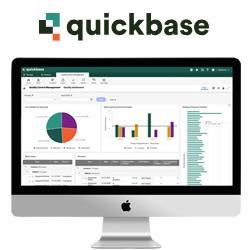New Report Shows Residential Solar in Colorado Up 30%
The Solar Market Insight Report found that as of Q3 2014 more than 20,000 Colorado homes have "gone solar," along with more than 1,500 Colorado businesses.
WASHINGTON, DC - Demonstrating continued support for clean, renewable energy, residential solar installations in Colorado in Q3 were up more than 30 percent over the same period last year, according to the new quarterly report from GTM Research and the Solar Energy Industries Association (SEIA).
The Solar Market Insight Report found that as of Q3 2014 more than 20,000 Colorado homes have "gone solar," along with more than 1,500 Colorado businesses.
"Time and time again, Coloradans have demonstrated their commitment to clean, renewable solar energy and exercised their right to choose their energy source," said Rhone Resch, president and CEO of SEIA. "In the past year, the cost of solar in Colorado has fallen 17 percent – largely due to smart and effective public policies, such as the solar Investment Tax Credit (ITC), Net Energy Metering (NEM) and Renewable Portfolio Standards (RPS)."
In 2013, $233 million was invested in Colorado to install solar on homes and businesses, and there are more than 327 solar companies at work throughout the value chain in the state, employing 3,600 Coloradoans. The 376 MW of solar energy currently installed in Colorado ranks the state 8th in the country in installed solar capacity. There is enough solar energy installed in the state to power 68,600 homes.
Nationwide, the solar industry employs 143,000 Americans and pumps nearly $20 billion a year into the U.S. economy. But solar also benefits the environment.
"The 17,500 megawatts of solar energy currently installed across the United States can generate enough pollution-free electricity to displace 20 billion pounds of coal or 2.2 billion gallons of gasoline," Resch added. "That's the equivalent of removing 4.3 million passenger cars from our roads and highways. Every 3 minutes of every single day, the U.S. solar industry is helping to fight the battle against damaging carbon emissions by flipping the switch on another completed solar project."
Featured Product

Quickbase: The first application platform built for dynamic work
By connecting everything through a single source of truth, the Quickbase platform helps businesses mitigate risk, reduce waste, and cut down on unexpected costs. With automated workflows and granular permissions, the right people will have access to the right information.
